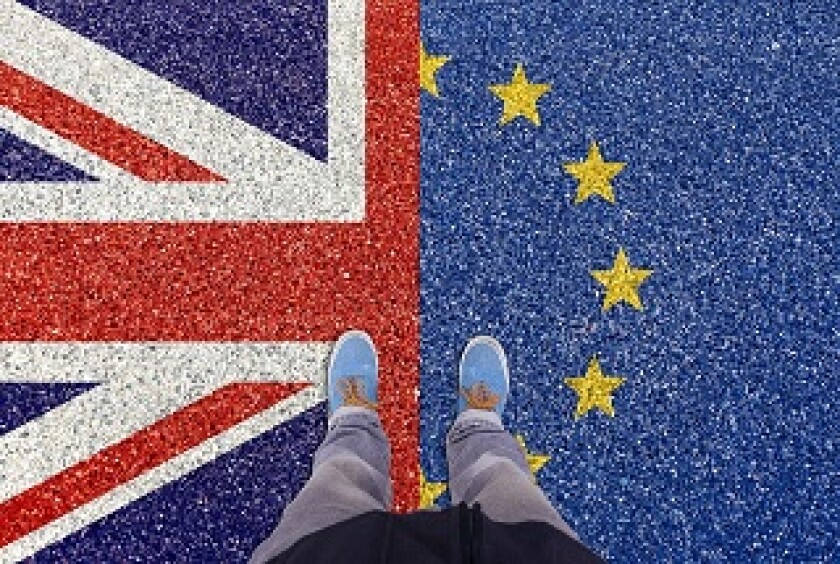The UK officially withdrew from the EU on January 31 2020. The transition period—a time of adjustment that is due to end on December 31 2020—began on February 1. Although there is provision in the Withdrawal Agreement for the transition period to be extended until December 31 2021 or even 2022, the UK government has been clear that it does not intend to request an extension.
Transition period
During the transition period, EU law continues to apply in and to the UK. Therefore, the VAT and customs treatment of supplies between the EU and the UK remains unaffected. For example, cross-border supplies of goods between taxable persons will continue to be treated as a VAT-exempt, intra-community supply of goods in the departure territory, and a VAT-taxable, intra-community acquisition of goods in the arrival territory. Additionally, no customs duties will be due.
Generally, services between taxable persons established in the EU and the UK will remain subject to VAT in the territory of the service recipient, while services to non-taxable persons will be subject to VAT in the territory of the service provider. Financial services rendered by EU service providers to UK clients (and vice versa) will remain VAT-exempt without the right to recover input VAT.
Separation provisions
There are some separation provisions within the Withdrawal Agreement to ensure a smooth winding down of current arrangements. For example, EU VAT and customs legislation will continue to apply to intra-community supplies of goods that started before the end of the transition period and that ended after the period. EU VAT law will apply for five years as from the end of the transition period to any transaction with a cross-border element that occurred during this period. EU/UK suppliers of electronic, broadcasting, and telecommunications services to foreign private clients established in the UK or the EU, respectively, will have until December 31 2021 to correct VAT returns relating to transactions performed during the transition period.
EU/UK taxable persons may claim a refund of the VAT incurred in 2020 in the EU or in the UK (e.g., VAT on hotels, seminars, transport), respectively, via their national VAT authorities’ website but only up to March 31 2021 (but businesses should be mindful of the normal September 30 2020 deadline during the transition period). After this date, the UK VAT will likely be refundable, under a similar process to the 13th EU VAT Directive process, and similarly EU VAT should be refundable to UK businesses. Potentially affected businesses should take advantage of the current system to file their claims as soon as possible.
Northern Ireland
The withdrawal agreement includes, in a protocol, the special rules applicable to Northern Ireland after the end of the transition period. Northern Ireland will continue to be part of the UK customs territory, but the Union Customs Code will apply to goods entering Northern Ireland. EU VAT rules on goods (not services) will continue to apply. The aim of this regime is to avoid any ‘hard’ border and physical controls between the Republic of Ireland and Northern Ireland. No EU customs duties will be due on goods introduced into Northern Ireland from another part of the UK, or a third country, unless there is a risk that the goods will be transferred to the EU. In such a case, EU customs duties would be due.
During the transition period, a joint working group will determine the detailed operation of the protocol, for example defining which goods are at risk. The rules governing intra-community supplies and acquisitions of goods will continue to apply to supplies of goods between the Republic of Ireland and Northern Ireland.
Businesses with operations in both Great Britain and Northern Ireland will need to be able to manage two different VAT and duty regimes in relation to goods, which will likely entail systems updates and revised processes.
The future trading arrangements
During the transition period, the UK and the EU will negotiate the terms of a free trade agreement that would be effective as from January 1 2021. Traditionally, the impact of such agreements for indirect taxes is to abolish or decrease customs duties, and simplify customs formalities without affecting VAT. As a result, there are a number of indirect tax changes that we know will arise at the end of the transition period, irrespective of the outcome of the negotiations.
Businesses trading with the UK will benefit from unchanged indirect tax rules in 2020, but should use the transition period to prepare for the changes that will come into effect at the end of the transition period.
Christian Deglas
T: +352 45145 2611
Michel Lambion
T: +352 451 453 993













